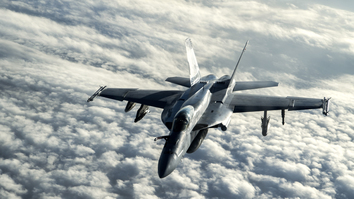KABUL -- US Secretary of State Mike Pompeo arrived in Kabul Monday (March 23), a day after the Afghan government and the Taliban held their first discussion on arranging prisoner exchanges, a key step in a broader push for peace.
Pompeo met with President Ashraf Ghani and with Abdullah Abdullah, who also claims the presidency following the presidential election last September.
"The two sides discussed the peace process, next steps in the process and regional consensus for peace, as well as the security and political situation in Afghanistan," Ghani's office said in a statement.
The top US diplomat was welcomed by US Special Representative for Afghanistan Reconciliation Zalmay Khalilzad after arriving at the Kabul airport, according to a pool report from a journalist with Pompeo.
![US Secretary of State Mike Pompeo (right) leaves the office of Abdullah Abdullah (left) in Kabul after meeting with him on March 23. [Abdullah Abdullah/Facebook]](/cnmi_st/images/2020/03/23/23154-abdullah-585_329.jpg)
US Secretary of State Mike Pompeo (right) leaves the office of Abdullah Abdullah (left) in Kabul after meeting with him on March 23. [Abdullah Abdullah/Facebook]
"Today, the US and Qatar facilitated the first Afghan government to Taliban technical talks on prisoner releases, via Skype video conferencing," Khalilzad tweeted March 22.
"The Peace Initial Contact Group (PICG) of the Islamic Republic of Afghanistan met virtually today with Taliban representatives," Afghan National Security Advisor Hamdullah Mohib said on Twitter.
"All sides emphasised the importance of a reduction in violence, direct negotiations, and a permanent and comprehensive ceasefire," he said. "During the meeting, the sides exchanged views on initial technical steps required to pave the way forward on prisoner releases."
Last week Khalilzad said it was "urgent" to quickly conclude plans for such exchanges as the coronavirus pandemic was complicating diplomatic contacts.
"The United States would like to see prisoner releases begin as soon as possible in line with the US-Taliban agreement," he tweeted March 18.
"Coronavirus makes prisoner releases urgent; time is of the essence," he said.
Khalilzad is the lead US negotiator in peace talks with the Taliban.
Standoff over prisoner release
The United States signed a deal with the Taliban on February 29 that set in motion the withdrawal of foreign forces and called for the release of captives ahead of talks between the insurgents and the Afghan government.
The deal called for the release of as many as 5,000 Taliban fighters held by Kabul and of up to 1,000 members of the Afghan government forces in Taliban prisons.
That was meant to take place before the start of peace talks originally set for March 10 between the government and the Taliban.
After initially refusing to release the Taliban prisoners, Ghani announced that the authorities would free 1,500 insurgents as a "gesture of goodwill" with plans to free another 3,500 prisoners after the talks are under way.
The Taliban rejected the offer.
The Doha accord also calls for the gradual withdrawal of American and other foreign troops over a 14-month period.
The first phase of that withdrawal has already begun, though some troop movements have been slowed by the coronavirus pandemic.
In exchange, the Taliban committed to fight terrorist groups like al-Qaeda and promised to negotiate for the first time with Kabul.
But since the Doha agreement was signed, the Taliban have carried out scores of attacks against Afghan security forces and civilians.
Afghan health officials have reported 40 cases of the novel coronavirus and one death to date.
However, public health specialists fear the contagion is spreading, particularly after Iran forcibly deported thousands of infected refugees and pilgrims back into Afghanistan, flouting international safeguards set up to prevent the spread of the deadly virus.

![Afghan President Ashraf Ghani meets with US Secretary of State Mike Pompeo at the Presidential Palace in Kabul on March 23. [Afghan Presidential Palace]](/cnmi_st/images/2020/03/23/23153-pompeo-585_329.jpg)







We ask the United States to put an end to the Afghanistan deadlock as soon as possible. This situation has been created by the United States, and if the United States wants, it can change the situation. First, the United States must put an end to the impasse that came between Ashraf Ghani and Abdullah. The United States should convince Abdullah that the winner of the past elections is Ashraf Ghani. He was announced winner by the Election Commission, all the members of which had been elected by all presidential candidates, and he should respect the Election Commission decision and congratulate Ashraf Ghani on his success. And then it must take practical steps regarding the peace with the Taliban. The people are really tired of the war; the war takes victims from the poor people very day. About 30 soldiers of the country were killed in Zabul province three days ago. And instead of taking revenge from the Taliban, the government martyred 11 civilians including women and children in Imam Saheb district of Kunduz in an airstrike. So poor people are killed in the war. The children of Afghan leaders are not killed.
Reply1 Comment